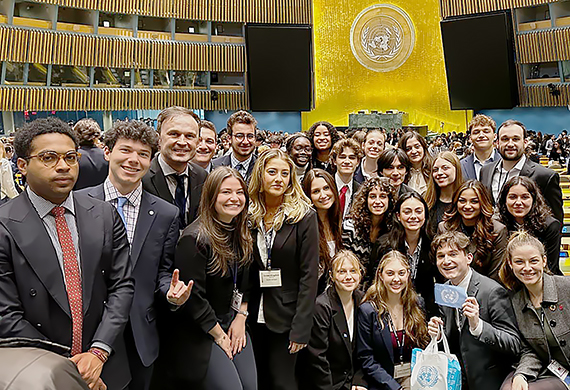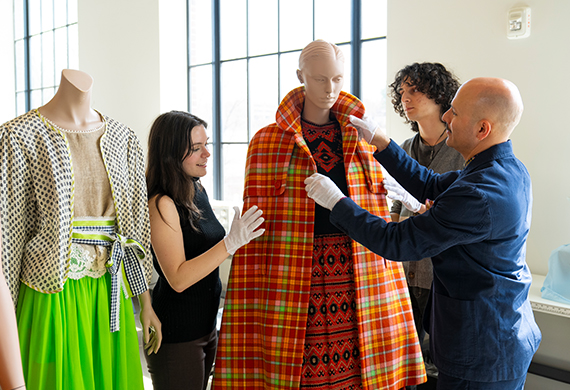President Murray’s Statement to the Marist Community, June 12, 2020
MEMORANDUM TO THE MARIST COLLEGE COMMUNITY
FROM: DENNIS J. MURRAY
On June 3, I wrote to members of the Marist community about the death of George Floyd and the resulting outpouring of anger and outrage across the country. The grievances driving the Black Lives Matter protests are legitimate and deserve to be addressed in a way that will bring lasting reform and ensure equal justice for all citizens. I received many responses to my letter, some positive and some negative, and I want you to know that I appreciate the thoughtfulness behind all of your feedback. I have spoken with students, faculty, staff, and alumni who care deeply about social justice, love this institution, and want to make it a better place for all.
As a student of history, I know that racism has been an enduring aspect of the American experience. Our country has not always lived up to its ideals or fulfilled its promise of equality for all. Likewise, Marist has not always been the college community we have aspired to be. A strong sense of community is one of our core values, but quite simply, not everyone has felt included. We must do better, and we will do better.
I raised this topic as an agenda item at our recent Board of Trustees meeting. I noted that we’ve heard from many of our constituents that it is time for “action, not words,” and the Board is strongly committed to action. In that spirit, Chairman Ross Mauri ’80 has established a Board-level committee to address these issues at the College, and he has appointed Trustee Stan Harris ’68/’06M to lead it. Stan is a medical doctor who was raised in Poughkeepsie and who has chaired the Board’s Student Life Committee for many years. Ross will be adding several additional Trustees to the committee, and the full Board will oversee Marist’s efforts to become a more supportive community.
This Board committee will set up processes to listen to and understand the lived experiences of those who have expressed concerns about the College’s racial climate. And we’d like to hear from the Marist community on what specific topics you think the committee should address. Some of the most obvious are hiring practices for faculty and staff, curriculum, training, and campus climate, but there may be others. The Board and I are deeply committed to ensuring that all members of the Marist community feel valued and heard, and you should feel free to share your thoughts at President@Marist.edu. We will listen to students, faculty, staff, alumni, the Black Student Union, Red Foxes Against Racism, the Diversity Council, the Diversity & Inclusion Alumni Advisory Board, and any other group that would like to express its views to the Board. Based on the feedback received, the committee will then approve specific action goals, implementation plans, timelines, and accountability. We’ll look forward to providing regular public reports on the progress made toward achieving our aims. As the Board committee’s composition and plans take shape in the coming weeks, we will offer further updates.
On a personal note, let me say that of all the very real challenges facing Black Americans, the killing of unarmed citizens by police is the one that pains me the most. Just this week, we were reminded of the urgency of this issue when we learned of the shooting death of Maurice Gordon on the Garden State Parkway by a New Jersey State Police trooper. Gordon was a Dutchess Community College student and Poughkeepsie resident, so this tragedy really hits home and underscores the need for meaningful change.
In closing, I would like to thank all those who gave me constructive feedback. As many know, the coming year will be my last as President of Marist, and I have two major goals: helping the College successfully navigate the coronavirus crisis and addressing these very significant issues. I hope I can count on everyone’s support in making Marist a more welcoming and inclusive institution for all of our community members.



